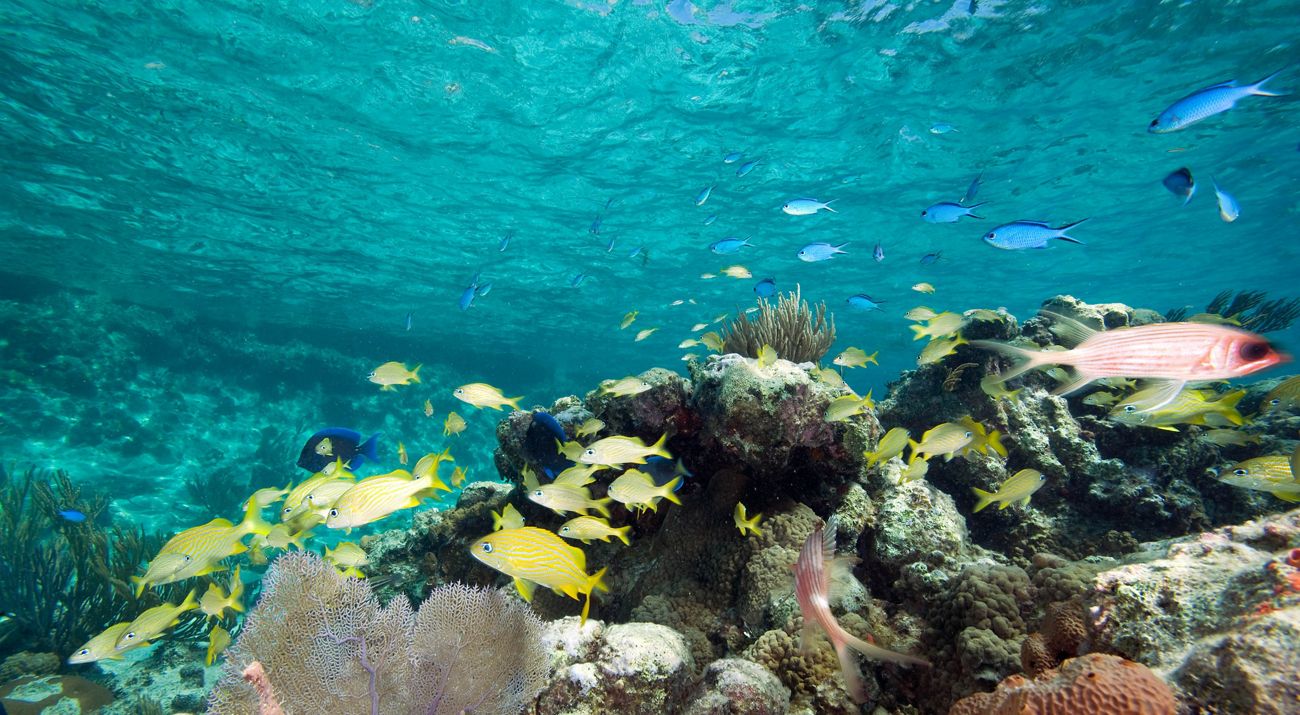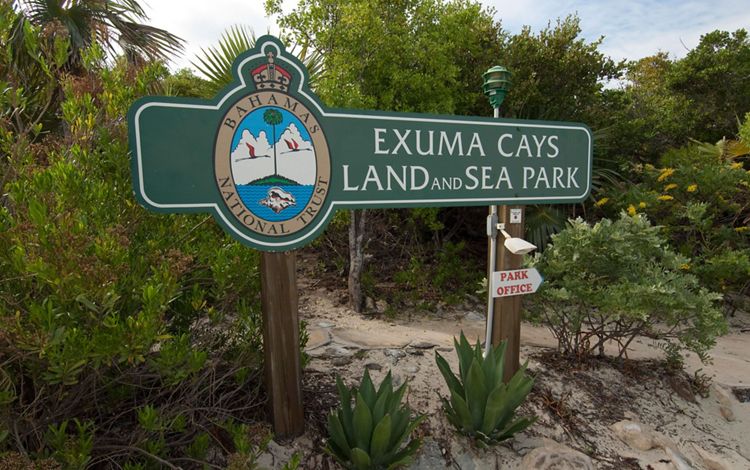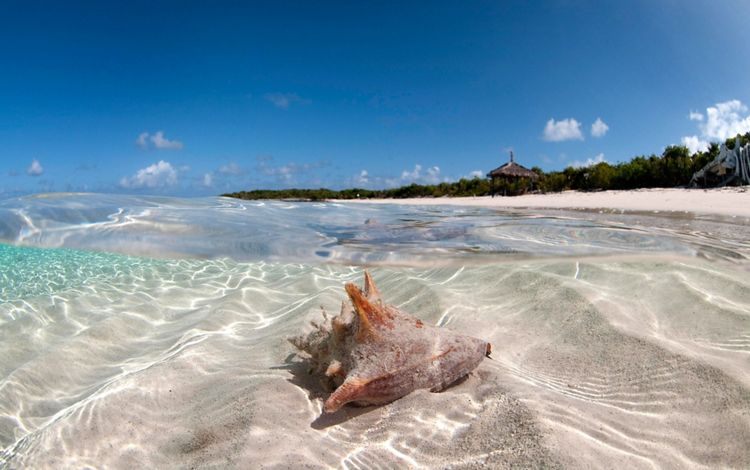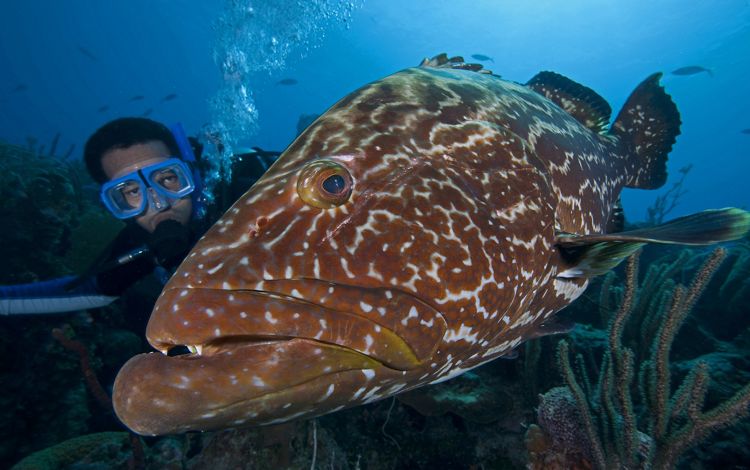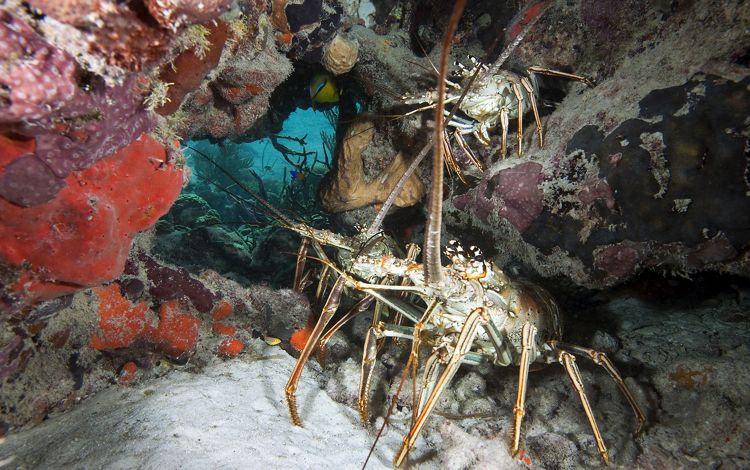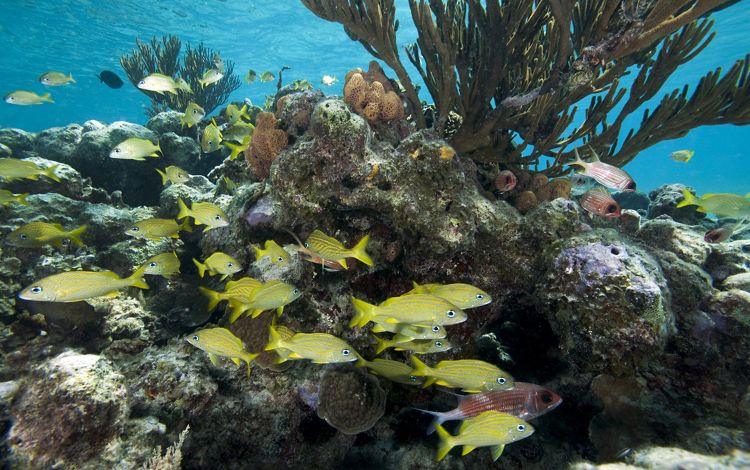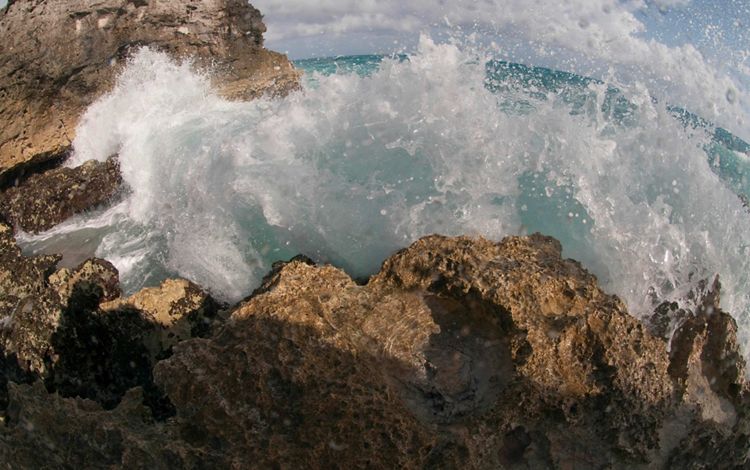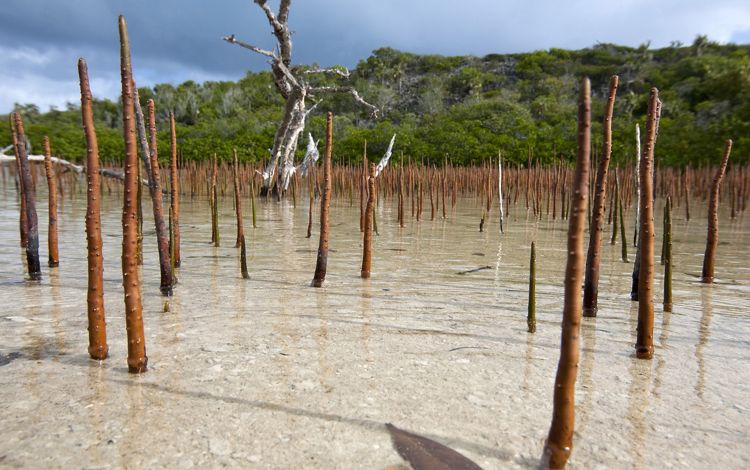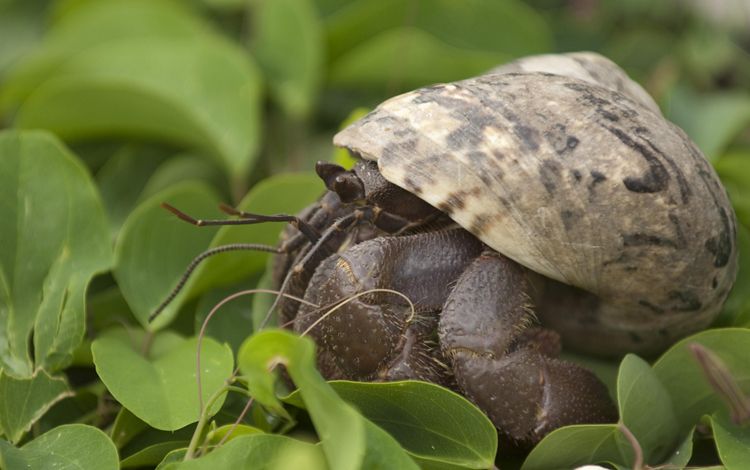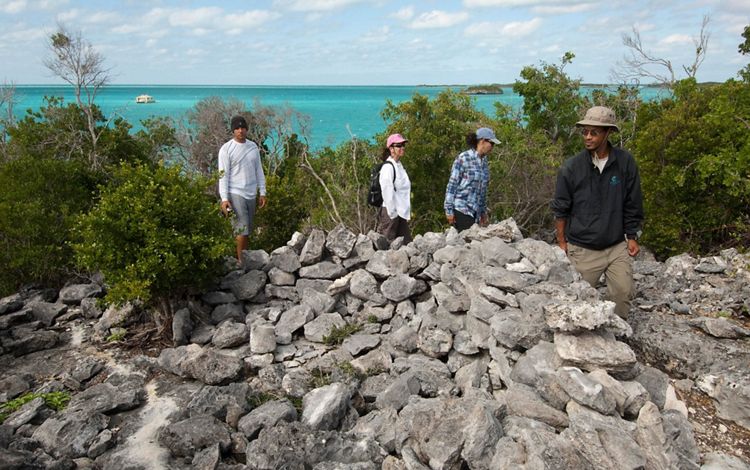Description
Exuma Cays, spanning over 100,000 acres of ocean, islands, blue holes, coral reefs and estuaries, was the first land and sea park established in the world. It is also the oldest national park in The Bahamas. The Bahamas National Trust, a partner TNC has worked with for many years, established this park in 1958.
The waters of Exuma Cays have been managed as a no-take reserve since 1986, allowing populations of commercially important species such as queen conch, Nassau grouper and spiny lobster to thrive. Sea turtles swim throughout coral reefs teeming with marine life.
Though the park is mostly water, the land is a vital refuge for a small mammal called the hutia, several rare iguana species and marine birds such as terns and white-tailed tropicbirds.
Ongoing Threats
Private development of vacation homes and booming tourism are two of the prevailing threats to the park. If not properly managed, these activities destroy native vegetation and lead to increased private and commercial boat traffic. Boats and divers can cause irreparable damage to coral reefs. Other threats include offshore channeling and dredging, water pollution and overharvesting of fish and other marine species.
Taking Action
TNC began working with the Bahamas National Trust in 2000. We support the park's staff and volunteers in their efforts to build nature trails, fund research, conduct wildlife studies and establish anchor or mooring fees for boaters. The goal is to make the park financially self-sufficient.
We also work with the Bahamas National Trust to:
- Encourage stewardship and natural resource preservation by linking government and community efforts focused on training, education and technical assistance
- Map all vegetation, land and water of Exuma Cays as part of a management plan for the park
Supporting Healthy Fisheries
Exuma Cays is also noteworthy for being the first no-take zone in the Caribbean. A no-take zone is exactly what it sounds like: an area that is protected from fishing or other types of marine harvesting or development. By creating a core protected area, where people are still free to sail, swim, snorkel, dive and hike, The Bahamas also protected the fisheries in the waters outside the park.
As Tucker Rolle, a native of the Exuma Cays, notes, “If it weren’t for the park, we’d have been fished out long ago.”
The park supports local fishermen as well as sport fishing and other lucrative tourism industries in the Exuma Cays. The park’s many treasures—pristine reefs, uninhabited islands, miles of white beaches and clear turquoise waters—attract visitors from around the globe.
